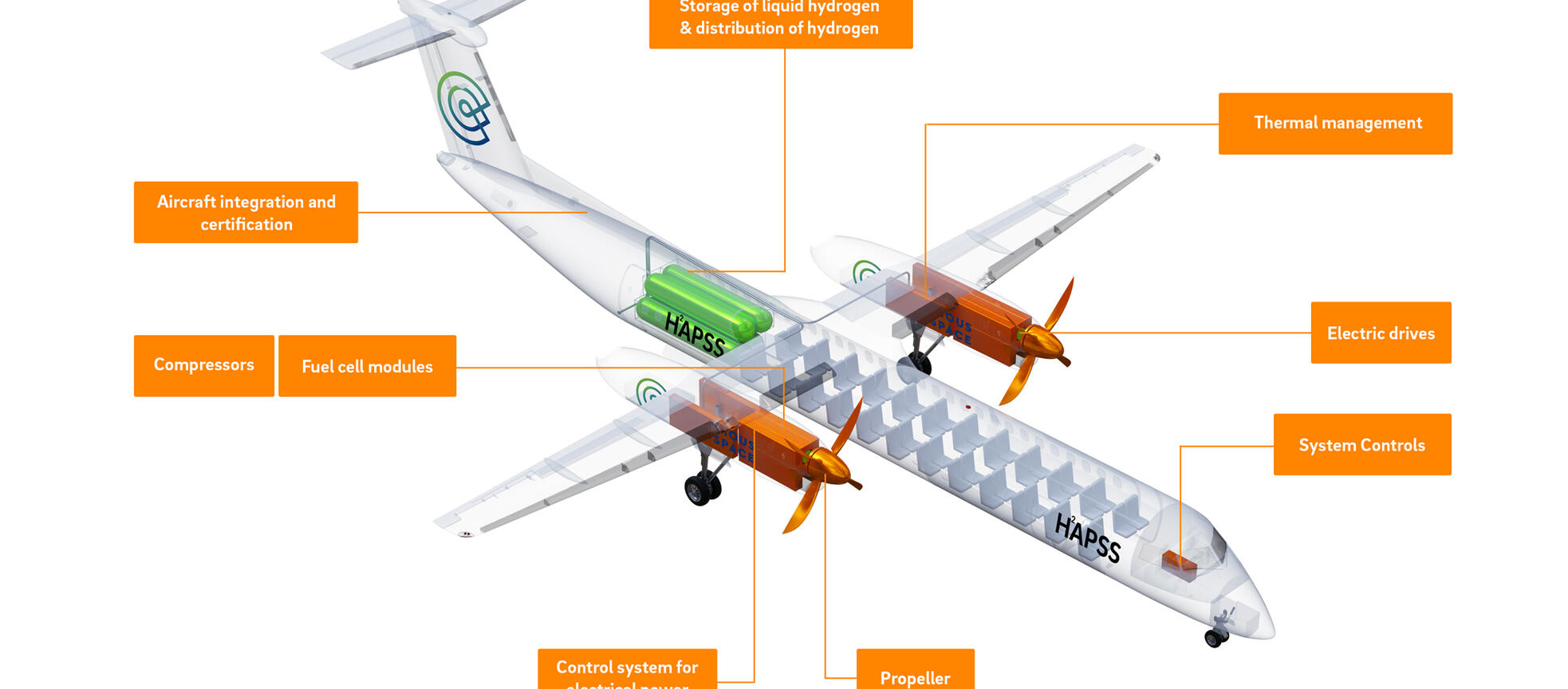EF Global VTOL
03 Jul 2023

After emerging from stealth mode, Conscious Aerospace is stepping up its plans to develop a liquid hydrogen-electric propulsion system. it says the system will be ready for commercial operations on retrofitted regional airliners by 2028, and potentially for new aircraft in the second half of the 2030s.
The Dutch company recently embarked on a partnership with Canada’s De Havilland Aircraft to retrofit the Dash 8-300 twin turboprop with its fuel cell-based powertrain, which will run on liquid hydrogen from tanks installed in the rear of the fuselage. On April 17, the two companies signed a first-phase agreement to collaborate in the application of fuel cell-based propulsion, with Conscious developing the hydrogen-electric system and De Havilland acting as the system integrator.
Conscious has gone public with its plans later than California rivals Universal Hydrogen and ZeroAvia, which have been lining up funding and prospective customers for similar propulsion systems for several years. Both these companies have flown technology demonstrator aircraft using gaseous hydrogen, although their intention is to switch to liquid hydrogen for the systems they plan to bring to the market as soon as 2025. This will be subject to the companies securing the necessary supplemental type certificates to convert aircraft such as the Dornier 228 and the ATR42 and 72.
De Havilland manufactured the Dash 8 family of aircraft and holds the type certificate. Its engineering team is working with Conscious Aerospace to assess what it will take to install the Hydrogen Aircraft Powertrain and Storage System, which the Dutch start-up refers to as HAPPS 2100.
“We’ve been working for three years on the most promising blend of technology that will have the most future potential,” said Michel van Ierland, who founded Conscious Aerospace in 2022. “We don’t want to be the first company to demonstrate the technology; we’d rather take longer to have the most reliable solution to provide real true zero-carbon aviation for airlines. Liquid hydrogen will have better energy density than gas and is better for storage.”
HOW GREEN IS YOUR HYDROGEN?
Regarding the ability of aviation to meet its zero-carbon commitments under United Nations IPPC agreements to counter climate change damage, van Ierland said policymakers have yet to determine what production process for hydrogen fuel will be considered sufficiently green. In his view, this could take a few more years to resolve, giving time for the propulsion systems themselves to be refined.
In standard configuration, the Dash 8-300, which has been out of production since 2009, seated around 50 passengers. To make space for the hydrogen fuel tanks and still be economically viable, seating for the retrofitted aircraft is expected to be limited to between 37 and 40 seats.
The range will also be less than the standard aircraft’s limit of 924 nm with its Pratt & Whitney PW123 engines. The projected number has yet to be published, but van Ierland said that regional airliners will still be able to serve around 90 percent of their current routes, which are generally far shorter than the maximum range.
DUTCH GOVERNMENT BACKS HYDROGEN CONVERSION PLAN
Conscious Aerospace recently received the largest share of Dutch government funding of €383 million through its Luchtvaart in Transitie (aviation in transition) fund. The company expects to announce more supply-chain partnerships and some prospective customers as it continues design work on the HAPPS 2100 system and prepares to start ground testing in 2025.
Conscious Aerospace’s management team includes Dutch aerospace veterans from companies such as Fokker and GKN, including its CEO, Erik Geertsema, and former GKN Aerospace CEO Hans Büthker, who is on its advisory board, along with former KLM Royal Dutch Airlines president and chief executive Peter Hartman. The company’s chief operating officer and program director is Kees van der Snel, who has experience in electric propulsion in the railway and automotive sectors.
Referring to his company’s alliance with Calgary-based De Havilland, van Ierland, who formerly worked with the Netherlands’ Royal NLR aerospace research laboratory, said this will build on years of partnerships between the Dutch and Canadian aerospace sectors. “There is a legacy of trust and we are connecting established ecosystems here,” he added."By doing so we will set a path forward for a cleaner future.”